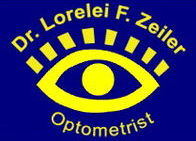
When children struggle to focus, read, or complete tasks, many parents and teachers assume Attention Deficit Disorder (ADD) or Attention Deficit Hyperactivity Disorder (ADHD) is the culprit. While these conditions are genuine and affect millions, some children may be misdiagnosed due to an often-overlooked factor: vision problems. Vision issues can mimic the symptoms of ADD/ADHD, leading to unnecessary medications and frustration for both children and their families.
Understanding the connection between vision and behavior is key to helping children succeed academically and personally.
Below, our Caledonia eye care team at The Office of Dr. Lorelei Zeiler discusses the different ways vision issues can mimic ADD/ADHD and how we can help identify the real problem and help get your child’s learning back on track.
How Vision Issues Mimic ADD/ADHD Symptoms
Vision involves more than just seeing clearly. It encompasses a range of skills, such as eye tracking, focusing, and coordinating both eyes to work together. When these visual functions are impaired, children may exhibit behaviors similar to ADD/ADHD, including:
- Difficulty concentrating on tasks: Children with vision problems often lose focus during reading or homework due to visual discomfort.
- Restlessness or fidgeting: Constantly shifting positions can be a subconscious way of relieving eye strain.
- Avoidance of reading or close work: Vision difficulties can make these activities tiring and frustrating, leading to avoidance.
- Poor academic performance: Struggling to process visual information can affect comprehension, reading fluency, and test scores.
These symptoms are not caused by attention deficits but rather the brain struggling to compensate for vision problems.
Common Vision Problems Mistaken for ADD/ADHD
Several functional vision issues can produce symptoms that resemble ADD/ADHD, including:
- Convergence Insufficiency: The inability to keep both eyes working together when focusing on close objects, causing double vision or headaches.
- Accommodative Dysfunction: Difficulty maintaining focus or quickly shifting focus between near and distant objects.
- Eye Tracking Problems: Trouble following lines of text, leading to skipped words or re-reading sentences.
Without proper diagnosis, these conditions can go unnoticed, creating additional challenges for children already struggling in school.
Comprehensive Vision Evaluations in Caledonia
Routine vision screenings at school typically test for basic eyesight, such as nearsightedness or farsightedness, but they often miss functional vision problems. A comprehensive evaluation by a developmental optometrist goes beyond 20/20 vision to assess:
- Eye alignment and coordination
- Focusing abilities
- Visual processing skills
If a vision issue is detected, your child can begin treatment that targets the root cause of their difficulties.
Vision Therapy: A Path to Success
Vision therapy is a personalized, non-invasive treatment program designed to improve the way the eyes and brain work together. It involves structured exercises that address specific vision problems, helping children overcome challenges in and out of the classroom.
Benefits of Vision Therapy
- Improved focus and sustained attention during tasks
- Enhanced reading fluency and comprehension
- Reduced eye strain and headaches
- Increased confidence and academic performance
By addressing the underlying visual challenges, vision therapy often resolves behaviors that mimic ADD/ADHD without the need for medication.
Empower Your Child’s Learning Potential
If your child has been diagnosed with ADD/ADHD or exhibits similar symptoms, it’s essential to rule out vision issues as a contributing factor. A comprehensive vision evaluation can provide clarity and ensure they receive the appropriate care.
At our practice, we specialize in identifying and treating functional vision problems that impact learning. By working together, we can help your child thrive academically and build the confidence they need to succeed.
